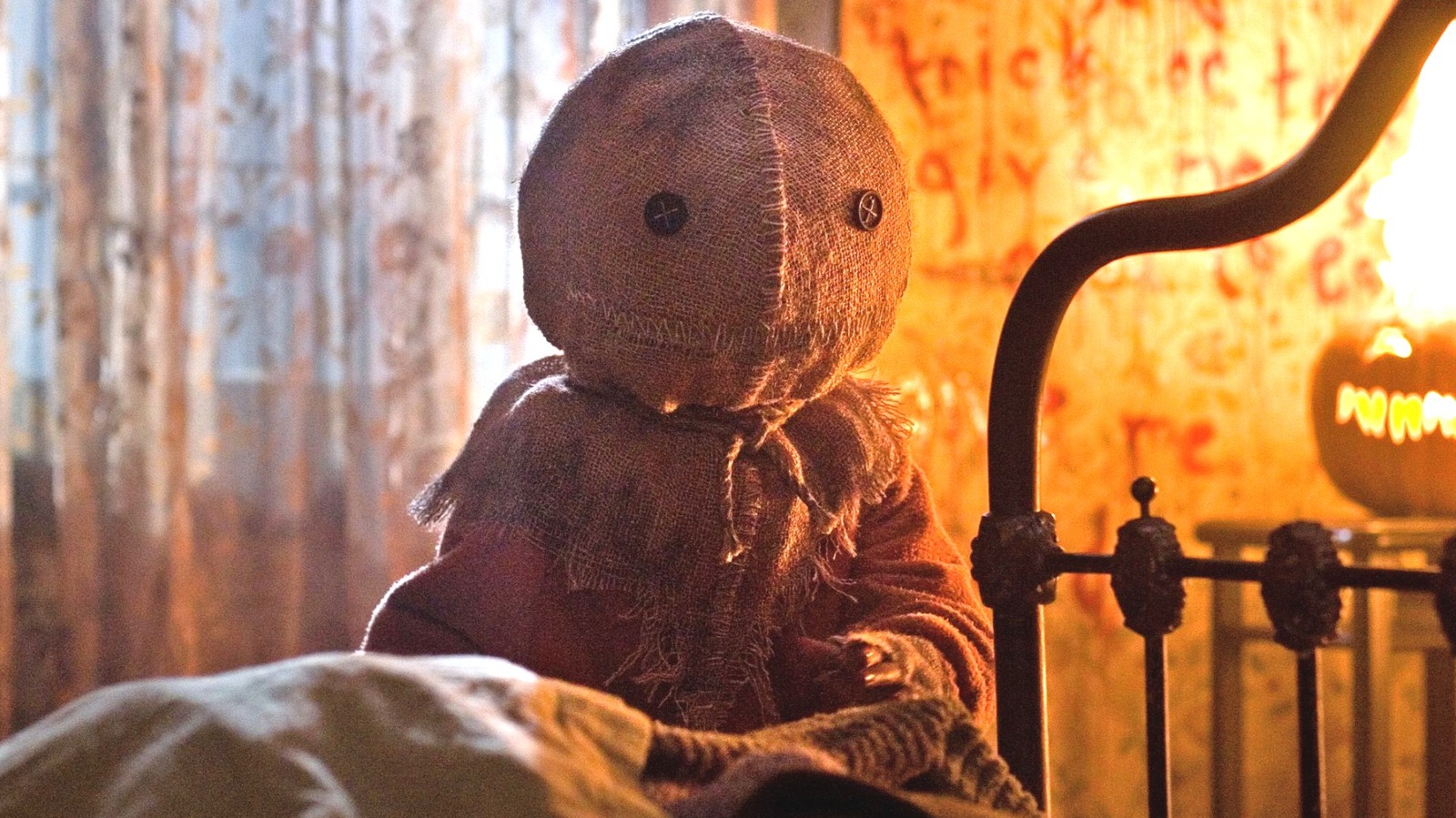Horror movie sequels have become an industry of their own. Some franchises, like the “Saw” series, boast numerous installments that weave intricate lore. Even if the continuity doesn’t always make perfect sense, fans of the original film often find them entertaining. However, not all sequels are welcome; some feel unnecessary or fail to capture the essence of what made the original great. Conversely, there are plenty of outstanding horror films that deserve sequels—yet, decades later, fans are still left waiting.
The reasons for wanting more installments vary: maybe the world-building is captivating, unanswered questions linger, or audiences simply crave more time with beloved characters, monsters, or settings. Regardless, many horror movies still lack sequels, even when they undoubtedly merit them. Here are some of the most notable examples that keep fans up at night.
### The Thing (1982)
What happens when a shape-shifting alien can perfectly replicate any life form? That’s the terrifying premise facing a group of researchers in the Arctic in John Carpenter’s *The Thing*. With anyone possibly being the monster, paranoia and mistrust run rampant. While there are ways to detect the alien impostor, they come at a high cost. Questions abound: who will survive? Will the Thing escape? Where did it come from?
*The Thing* leaves fans craving more, though matching the original’s high standard is no easy feat. There have been a few expansions, including a Dark Horse Comics sequel series and a prequel film also titled *The Thing*, but no official second installment. Director John Carpenter has shared ideas for continuing the story — from new groups discovering the original researchers and the Thing, to the alien spreading to new continents or even multiple Things invading Earth.
A planned *Thing* sequel miniseries for Syfy in the early 2000s would have deepened the mythology, including time jumps and new settings. Unfortunately, budget constraints shelved the project, leaving fans eagerly awaiting any future continuation.
### Night of the Creeps (1986)
A frozen body preserved by a university holds an alien secret: parasitic slugs that invade and control human hosts. When college students Chris and J.C. accidentally thaw the corpse, the slugs begin to spread, turning victims into zombie-like killers.
*Night of the Creeps* is a clever creature feature ripe for a sequel. The alien slugs’ origins, potential other crash sites (as hinted in the opening), and their ultimate goals remain unexplored. The story’s flexible setting means a sequel could take place anywhere, expanding on the alien invasion or showing the world after infection spreads. Fans are still waiting to see what happens after the slugs take over.
### They Live (1988)
Nada, played by Roddy Piper, discovers a pair of sunglasses that reveal many humans, especially those in power, are actually aliens manipulating society. With help from coworker Frank, they expose the truth.
While *They Live* leans toward sci-fi, its themes of alien invasion and societal control make a sequel an intriguing prospect. The original ending may seem final, but a follow-up could reveal how the world responds when the truth is out, potentially showing the aliens’ weakening grip and more desperate tactics. Such a story would allow the horror and satire to evolve in compelling ways.
### Event Horizon (1997)
In space horror *Event Horizon*, a rescue crew boards a mysterious spaceship that vanished on its maiden voyage. The ship harbors a godless, paranormal force causing terrifying hallucinations and death.
The movie’s ambiguous supernatural menace invites many plot extensions. A sequel could explore the origin of the evil force or follow new crews encountering similar horrors. The ending suggests a cyclical fate, opening the door to time loops or revealing more about the dark dimension the ship traveled through.
Director Paul W. S. Anderson once mentioned exploring sequel and prequel ideas, and while he later expressed disinterest, others are still developing potential stories. Fans remain hopeful for another look inside the *Event Horizon* universe.
### The Crazies (2010)
Both the original 1973 film and its 2010 remake tell the story of a small town overrun by a mysterious biological agent that drives people homicidal. Government quarantine efforts fail as the infected overpower them.
Despite earning over $54 million against a $20 million budget, the 2010 *The Crazies* has no sequel. Yet, the premise naturally begs what would happen if the infection spread worldwide. Would society collapse into chaos, or would survivors emerge, similar to *The Stand* or *The Walking Dead*? The global fallout, immune populations, and long-term consequences remain unexplored—leaving ample room for continuation.
### Oculus (2013)
*Oculus* follows Kaylie, who investigates her family’s tragic past, linked to a sinister antique mirror that twists reality. The movie explores trauma, memory, and supernatural influence in a tightly woven narrative.
Directed by Mike Flanagan, now known for acclaimed Netflix horror series, *Oculus* is arguably one of his best films but is often overlooked. A sequel could further develop the mirror’s mysterious powers and dark lore—perhaps showing it falling into new hands or revealing more about its origins and influence.
Given its unique concept and psychological depth, many fans remain surprised that no follow-up has been produced.
### The Belko Experiment (2016)
Americans working abroad face unimaginable terror when a disembodied voice orders them to kill each other in their office building. With deadly consequences for disobedience, the employees must decide who survives.
The film ends hinting at “Stage 2” of the experiment, teasing much more chaos to come. A sequel could explore this next phase, focusing on characters like Mike, the protagonist, as he navigates or fights back against the shadowy organization behind the experiment. Comparable to shows like *Squid Game*, the concept offers plenty of potential for high-stakes horror and social commentary.
As of 2018, no sequel plans have been announced, but fans and cast alike remain eager for a continuation.
### The Void (2016)
*The Void* presents a nightmarish tale involving cults, hospitals, and cosmic entities. Dr. Richard Powell, a cult leader who has found a way to cheat death through dark forces, confronts horrific tentacle monsters and otherworldly horrors.
The film ends on a mysterious note: what becomes of Dr. Powell and the sheriff after they fall into the void? Are they trapped in an afterlife or alternate dimension? Is Powell merely a pawn of deeper cosmic powers?
A sequel could answer these questions without trying to resolve every mystery, allowing the mythology to expand gradually and remain hauntingly ambiguous.
### Us (2019)
Jordan Peele’s *Us* explores a terrifying invasion of doppelgängers called the Tethered, who violently seek to “untether” themselves from their surface counterparts. Adelaide and her family face a harrowing battle for survival as the country descends into chaos.
With its shocking twist and rich social commentary, *Us* sets the stage perfectly for a sequel. What happens to Adelaide? Do the Tethered gain more influence? Could we follow a different family on the opposite side of the country during the original events?
As long as Peele remains involved, another *Us* film could build upon its unique universe without rehashing old ground, offering fresh perspectives and expanding the themes that made the first film so compelling.
—
These horror movies all set the stage for fascinating continuations that have yet to materialize. Whether it’s expanding terrifying worlds, exploring unanswered questions, or diving deeper into unforgettable characters and monsters, fans continue to hope that these stories one day get the sequels they deserve. Until then, their mysteries and thrills remain locked on the screen—and in our imaginations.
https://www.looper.com/2012106/horror-movies-deserve-sequels/



